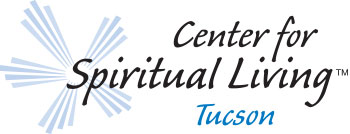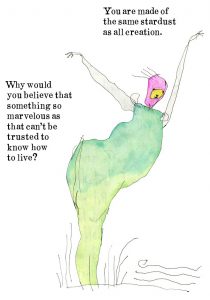I’m not sure what specifically ‘made me notice‘ this particular hidden belief, but it resurfaces for me now and then. Every time I think I’ve made progress, then l discover another deeper layer wanting to be seen and addressed. In any case, it’s in my face again.
My mother was always settling for, making do with whatever life gave her, not imagining anything better or different, and it annoyed me immensely that this was the way things were. Some of the memories were challenging like hand-me-down clothes, wearing shoes that were a little bit too small, and sharing orders of toast when we would (rarely) eat breakfast out. Some memories are sweet, like the Christmas she sewed a pleated skirt and little blouse for my virtually hairless, much beloved doll, and made a boudoir chair (with cushion) to match the outfit out of a cylindrical oatmeal box. That’s just the way it was back then, when there was very little extra and you made what you had work for you, at least in our neighborhood.
There’s an old foreign film called ‘Babette’s Feast‘. (In my mind, it is much older than 1987, but that’s what wikipedia says.) A French refugee spends her entire fortune to purchase ingredients, and prepares an amazing seven-course meal for some townspeople not used to ‘fancy food’. The elderly villagers who were recipients of the meal decided it was sinful to appreciate the food, and so they agree to eat it and say nothing. One guest, from out-of-town, raved about the meal. After the meal is done, they ask her when she is going back to Paris, and she says there’s no money left and she’s not leaving. Sigh.
My particular variation of this hidden belief is not particularly economic. I do always have what I need to do what is important to me. Partly because I recognize the law of circulation operates — when I generously give, I generously receive. It happens automatically. I don’t give to receive. I just give. Also, part of it is that I’m not particularly high-maintenance, except for books, and fabric. The spot where I get caught, and I feel like I’m operating from lack, is in collaboration/support. By way of explanation, my primary love language, as described in the Five Love Languages is acts of service. I feel especially valued, seen, heard, and appreciated when people do things they say they will, or show up when they say they will. If I’m not managing my own internal resources, and not noticing when I have given control of my experience of well-being away to someone else’s action or inaction, I can feel unloved when people are not congruent. Most of the time, I’m pretty OK with the way life works because I generally pay attention to my own self-management.
[If you haven’t taken the free test at Five Love Languages, I highly recommend it. If you are in relationship with someone, especially if you feel like you are sometimes not on the same wavelength, I suggest you ask them to take it too, and share your results with each other. It is eye opening to realize how you give and receive love and appreciation. If there is an absence of alignment in love languages in the partnership, there are suggestions of things you can do to strengthen the relationship.]
Almost as quickly as I recognize this old (irritating) story, name it, and release it, an email pops up from someone insisting they will take care of a necessary task. Then someone else chimes in too, to handle another chore. It almost doesn’t matter to me whether I accept the offers of help, simply that the offers have been made, and were genuine. Then a third person shows up. Now, I feel almost inundated by helpful people.
So, my awareness once again reminds me that I can see my life as crumbs, where I feel like I’m making do and settling for less than what I desire, or I can see my life as a beautiful slice of cake with a perfect cup of fragrant coffee, completely aligned with my needs and wants. As usual, it’s up to me, and how I choose to see my world. Is this a familiar story for you,too? How do you handle it?
—Rev Janis Farmer






